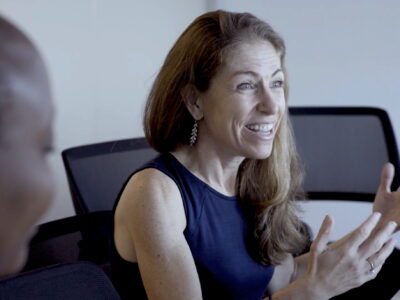Over the past half century, we have seen the environmental issue evolve from a fringe issue barely clinging to a spot on the American political agenda to the subject of a pope’s encyclical. Presidents and prime ministers must now negotiate over climate change and habitat preservation just as they have long held talks on trade, jobs and national security. Technology has transformed how we live and has made life easier and more intellectually stimulating for many of the people of the world, but technology’s unmanaged use has damaged the planet and left many people behind in a state of extreme poverty that the pope correctly termed a moral issue.
The wanton and purposeless consumption of the planet’s resources is unethical. Jim Yardley and Laurie Goldstein summarized the encyclical in the New York Times last week and reported that the pope’s:
“…most stinging rebuke is a broad economic and political critique of profit-seeking and the undue influence of technology on society. He praised the progress achieved by economic growth and technology, singling out achievements in medicine, science and engineering. But, he added, “Our immense technological development has not been accompanied by a development in human responsibility, values and conscience.”
I agree that we need to see growth and increased acceptance of values and conscience related to global sustainability, nevertheless, I see far more of that today than I have ever seen. Along with the growth of economic consumption we have seen the growth of an environmental ethic. Importantly, the environmental ethic is stronger in young people than in old people. Young people have grown up hearing about environmental issues, along with issues related to nutrition, physical fitness and public health. People are paying more attention to their own wellbeing and to the state of the planet. Many believe that their elders have destroyed the ecosystems that they will end up inheriting and that perception has created a sense of urgency about the sustainability of our planet and the global economy that we have built.
Young people are bringing sustainability to the center of the policy agenda, and to the center of the management agenda in the organizations they work for. In the workplace it is not unusual to see staff asking for “greener” workplaces—toxic-free workplaces that are energy and water efficient and that pay attention to the environmental impacts of the goods and services they produce. Large companies like Apple and Walmart have been greening their operations in response to both external market pressures and internal social demands within their organizations.
On the policy agenda, we are now seeing the governing elites in both China and India starting to focus on environmental quality. The connection between air quality, toxics, clean water and the public’s health is clear to nearly everyone. One does not need to worry about the long-term impact of climate change to be concerned about breathing particulates from air pollution. All those people wearing masks on the street are not simply making a fashion statement; they are trying to protect their lungs. Sustainability has reached the center of our political agenda because all of us—rich and poor—are biological creatures. That is a fact. So too is the fact that the planet is getting more crowded and natural resources must now be shared among more and more people.
While it is helpful for the pope to define sustainability as a moral issue, my own take is that sustainability is a very practical management issue. We need to do a better job of exploiting the planet for our own use so that we can continue to use it without destroying the natural systems that sustain the planet’s ecological resources. We preserve the planet not because we love it or because its destruction is unethical, but because we need it. While I personally love nature and consider its destruction unethical, I am not counting on my belief system to dominate. With apologies to the pope, I am counting on self-interest, perhaps of the slightly enlightened form, to deliver a sustainable and renewable economy.
We have learned that we can grow economically without adding to the planet’s pollution load. We need to exercise greater care when we build our settlements and we need to use the best technology available to ensure that our waste products are suitable for some form of re-use rather than dumped into the ocean or into a hole in the ground. While it is critical to think about sustainability management as a moral imperative and helpful to integrate that into our sense of ethics and values, I believe that self-interest is also a force behind sustainability. It is true that short-term, rapid profit-taking is often done at the expense of environmental quality. But it is also true that long-term, growing and secure rates of return are best obtained through a management approach that places a higher value on maintaining environmental quality. Ask BP and GE if they wish they had been more careful in managing their operations as they pay billions of dollars to clean up the Gulf of Mexico and the Hudson River. Sometimes corporations manage to offload the costs of cleanup onto the rest of us, but at other times they get stuck with the bill. With drones, video cameras everywhere, and the relentless information machine of the World Wide Web, corporate misbehavior will be more and more difficult to hide.
When judging the competence of a corporate management team, investors are beginning to examine the organization’s capacity to measure and manage its use of resources and its impact on the environment. When people and business are looking for places to move to or grow, they look at the adequacy of a jurisdiction’s energy supply, water supply, air quality, transportation system, and overall quality of life. In a mobile global economy people can choose where they live or work.
The demand for sustainability is both the cause and effect of a number of facts of modern life, particularly: growing population, increased urbanization, increased use of natural resources, pollution, climate change, the political demand for economic development, inexpensive information and communication, and the growth of a connected global economic and communication system. These forces pretty much define the 21st century and the world we now live in.
There are many who consider the sustainability crisis so pressing that we do not have time to gradually and incrementally make the transition to a renewable resource-based sustainable economy. In fact, Vanessa Bobadilla and Erika Harris, two very talented students at NYU, recently reviewed the second edition of my book, Understanding Environmental Policy, and made this point as they expressed concern about what they saw as my lack urgency about sustainability. According to Bobadilla and Harris:
“…one is left wanting a sense of urgency and real actionable tools and solutions. We would argue that the central focus should not be tinkering around the policy edges, but on the rapidly changing climate and the changes we must make in our political, economic, education, communications, and value systems to overcome catastrophe…There is a clear sense that we no longer have time for incremental politics, and that we need a more fundamental change in our way of life.”
The problem is that the people in power are not interested in fundamental change, and most people in the developed world are satisfied with their way of life. They want to maintain that way of life. The most powerful political argument for protecting the planet is that to retain what we have, we must gradually change how we deliver the goods and services that people enjoy. The argument that people must give up what they enjoy does not win elections. Moreover, while revolutions often bring great change, they can also bring great suffering.
Malthus, Donella and Dennis Meadows (et.al.) (the authors of The Limits to Growth), and many others have predicted catastrophe for a long time. Each model missed some critical factor when it tried to predict the future. Climate is a serious problem. So too is the prospect of a dirty bomb in a crowded city. Extreme poverty remains a fact of life for far too many people. These are deep problems that require our best thinking to address. Despite the persistence of these problems, I see progress as we learn more about their dimensions and frame methods to address them. Because the problems are complex and the solutions may have unanticipated impacts, an incremental approach minimizes the risk of a catastrophic mistake. Over the past half-century, we have taken that approach, and the result has been progress and the emergence of sustainability as the central issue of our time. I choose to see the glass as half full.



